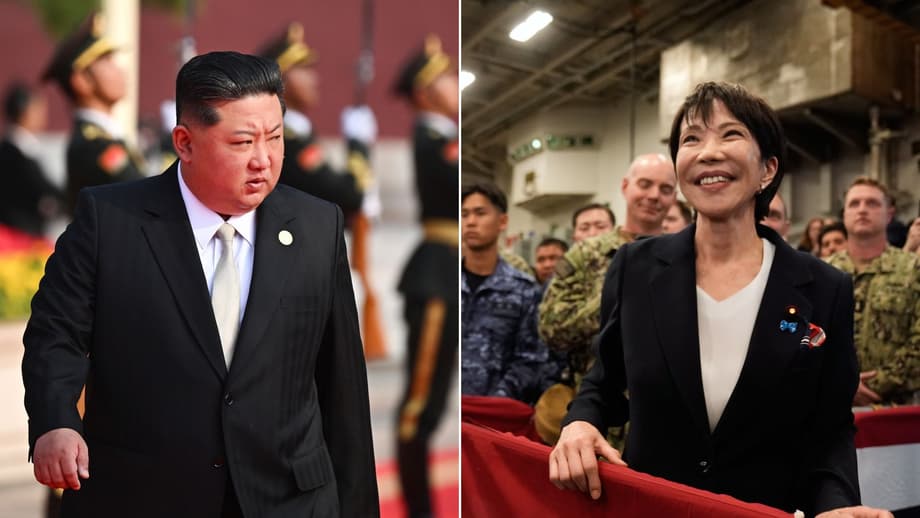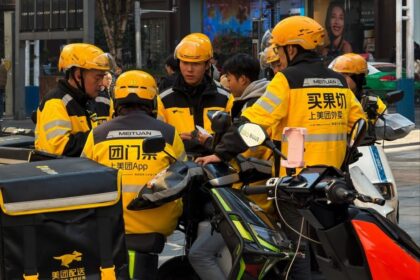A new opening on a decades old rift
Japan’s new prime minister, Sanae Takaichi, says Tokyo has asked for a direct meeting with North Korean leader Kim Jong Un to confront the unresolved abductions of Japanese citizens. A summit of leaders would be the first such encounter in more than twenty years. It would also test whether two countries without diplomatic relations can find a narrow path to progress on a case that is at once personal, legal, and political.
- A new opening on a decades old rift
- What Takaichi has put on the table
- Why the abduction issue still drives Japan
- What Pyongyang says and what it may seek
- Why a summit is difficult yet possible
- What the last breakthrough achieved
- Domestic pressure and the human clock
- What Japan could offer without breaching sanctions
- Signals to watch in Tokyo and Pyongyang
- Key Points
Speaking at a national rally in Tokyo organized by relatives of abductees and supporters, Takaichi said her government has already conveyed to Pyongyang the wish to hold a summit. The core objective is straightforward, to bring home Japanese nationals taken in the late 1970s and 1980s and to account fully for those still missing. North Korea says the matter is closed. Japan does not accept that position.
The stakes extend beyond the abductees. Tokyo and Pyongyang have no embassies. Communication depends on intermediaries, quiet channels, and rare public messages. Previous leaders, including Shinzo Abe and Fumio Kishida, signaled willingness to meet Kim but never reached that stage. A breakthrough now would mark a sharp shift in a relationship shaped by conflict, colonization, and the nuclear shadow on the Korean Peninsula.
What Takaichi has put on the table
Takaichi has made the abductee issue a top priority. She says she will do everything during her term to achieve a breakthrough. The prime minister has met the families twice since taking office, including a meeting with United States President Donald Trump during his visit to Japan that brought relatives face to face with Washington’s support. The government’s point person on the issue, Chief Cabinet Secretary Minoru Kihara, has pledged sustained engagement with the families and with foreign partners.
Speaking to families and supporters in Tokyo, Takaichi framed the effort as both a moral duty and a state responsibility.
Takaichi said: “We have already conveyed to North Korea our desire to hold a summit meeting. There is no time to lose. Resolving this issue while the families are still in good health is essential for both Japan and North Korea to envision a future where both nations enjoy peace and prosperity.”
She called the abductions a matter that touches lives and sovereignty, and said Tokyo is prepared to consider all possible measures within the law. The prime minister said any progress would be shared quickly with families, many of whom have campaigned for decades.
Why the abduction issue still drives Japan
Japan officially recognizes 17 citizens as abducted by North Korean agents during the late 1970s and 1980s. Testimony from defectors and North Korean admissions point to a covert program that trained operatives in Japanese language and customs, and sometimes stole identities. In September 2002, during a dramatic visit to Pyongyang by then prime minister Junichiro Koizumi, North Korean leader Kim Jong Il acknowledged abductions and apologized. Five abductees returned to Japan the next month, the first homecomings in a case that had long been denied by Pyongyang.
For the remaining cases, North Korea said some victims died in accidents or by suicide, and that a few on Japan’s list never entered the country. Japanese investigators reported inconsistent or insufficient evidence, including problems with documentation and disputes over remains provided by North Korea. Families have never accepted that the story ends there. They lobby at the Diet, attend government briefings, and speak at schools and town halls to keep attention on a case that has defined their lives.
What Tokyo considers a real resolution
In official terms, Tokyo seeks the return of every abducted citizen who is alive, a full accounting of those who died with verifiable evidence, prevention of any recurrence, and action against individuals responsible. Past exchanges of remains have failed DNA tests in Japan, which deepened mistrust.
What Pyongyang says and what it may seek
North Korea maintains that the abduction issue is settled. Its public position is that the five who returned in 2002 closed the matter, that eight others died, and that four on Japan’s list were never abducted. The message has been consistent for years. The country also bristles at any link between humanitarian negotiations and its nuclear and missile programs.
Kim Yo Jong, the sister of Kim Jong Un and a senior political figure in Pyongyang, addressed this in a statement carried by state media last year. She signaled a conditional opening while dismissing Tokyo’s core demand.
Kim Yo Jong said in a statement carried by state media in February 2024 that North Korea views the abduction issue as “settled” and that the country’s nuclear and missile programs have “nothing to do” with mending ties with Japan.
If Tokyo and Pyongyang do sit down, North Korea is likely to seek steps that ease pressure and deliver economic benefits. That could range from humanitarian aid to the restart of limited transport links, such as a ferry service between the two countries. More far reaching concessions, like sanctions relief or large scale economic cooperation, would require agreement from the United States and probably the United Nations, which is a high bar.
Why a summit is difficult yet possible
Even if both sides agree to meet, getting to practical outcomes will be hard. The abductee issue is emotionally charged in Japan. Moving ahead without clear progress on returns or credible accounting would be politically risky. For Pyongyang, admitting anything beyond what it has already stated would be difficult. The country’s leadership prizes control of narrative and rarely reverses public positions.
Regional security adds another layer. Tokyo works closely with Washington and Seoul on deterrence against North Korean missiles and nuclear devices. United States policy still calls for the complete denuclearization of the Korean Peninsula. North Korea rejects that goal and has advanced its arsenal. Analysts say a minimum step for meaningful dialogue would be a pause in provocative tests and a channel for steady contact at the working level. That would give space to focus on humanitarian questions without putting security concerns aside.
What the last breakthrough achieved
Koizumi’s 2002 trip produced the Pyongyang Declaration, a document that set out a path to normalize relations, acknowledge past harms, and prevent future problems. North Korea admitted abductions and apologized. The return of five abductees followed within weeks. In 2004, a second visit led to the return of more family members related to those five, which allowed parents and children who had been separated for decades to reunite in Japan.
Momentum faded. Working level talks sputtered, and investigations promised by Pyongyang did not produce convincing evidence. In 2014, North Korea agreed to a comprehensive reinvestigation into the abductees, and Japan in turn lifted some unilateral sanctions. Two years later, after Japan imposed new measures, Pyongyang dissolved the committee that had been set up to carry out that inquiry. The core issues have remained frozen since then.
Domestic pressure and the human clock
Every year, the families of abductees gather in Tokyo to ask for action. Many are elderly. Some have died without meeting their children again. Megumi Yokota, who was taken at age 13 in 1977, is the most widely known case. Her relatives have become the face of the movement. Their persistence has kept the issue on the national agenda through changes of government and shifting global crises.
Takaichi faces the same political calculus that confronted her predecessors. Success would strengthen her credibility at home and abroad. A summit that yields no returns could trigger criticism across party lines and from the families. The calendar matters. The longer talks take, the fewer parents and spouses remain to see the outcome.
What Japan could offer without breaching sanctions
Tokyo has room to propose steps that support dialogue while avoiding a clash with international sanctions. Humanitarian assistance, such as medical supplies or support for disaster relief, can be designed with strict monitoring. Visas for family reunions and cooperation on locating graves or burial sites could show goodwill without financial transfers. Resuming a passenger ferry would be more sensitive, since it intersects with sanctions and would require clear guardrails, but it remains a potential confidence builder.
Other ideas include opening liaison offices in a third country, expanding search teams that review missing persons cases, and setting predictable working level schedules for meetings. Each small step would depend on North Korean cooperation and verification that commitments are being met. Japan would likely coordinate any move with Washington and Seoul to avoid undercutting allied strategy.
Signals to watch in Tokyo and Pyongyang
In Tokyo, the appointment of a special envoy, new budget lines for investigative work, or quiet travel by senior officials to neutral capitals would indicate momentum. Public updates from the Cabinet Secretariat or the abduction issue task group would also matter. Families will look for clear timelines and transparent benchmarks for progress.
In Pyongyang, the strongest signal would be a pause in missile activity and an official notice through state media that a summit is under discussion. Other signs include authorization for humanitarian shipments, invitations for Japanese officials to visit, or the transfer of fresh evidence related to specific abductee cases. Even a small verified step, such as confirmed information about one individual, could break the stalemate and set a different tone.
Key Points
- Japan has asked North Korea for a leaders summit focused on abducted Japanese citizens.
- Prime Minister Sanae Takaichi called the issue a top priority and says there is no time to lose.
- Tokyo lists 17 abductees, five returned in 2002, the rest remain unresolved.
- North Korea says the matter is settled and disputes several cases.
- A summit would be the first meeting of leaders since 2004.
- Talks would intersect with nuclear and missile tensions, even if humanitarian issues lead.
- Families of abductees are aging, which heightens urgency for action.
- United States support for engagement remains strong, coordination with South Korea continues.












